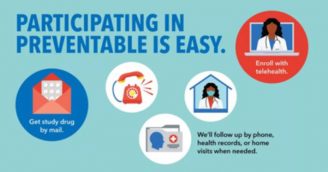
18 Oct Spring 2014 Models of Disease and Drug Discovery Course
The Models of Disease and Drug Discovery course covers the concepts involved in developing disease models in the laboratory, and using these model systems to identify candidate drugs that will eventually be developed for therapy in the clinic. Topics covered include current stem cell culture and animal models used to study human diseases, computational screening approaches for designing and identifying small molecules in drug discovery, and the steps involved in taking a drug from the bench to the clinic.
Specifically, models for human disease ranging from stem cells to non-mammalian animal models (zebrafish) to mammalian models (rat and mice) for biomedical research will be discussed. Course material will cover techniques for drug screening, platforms developed by companies and academics to screen drugs and steps involved in the drug discovery process.
Advantages and disadvantages of model systems will be discussed followed by the practical aspects of designing screens for small molecules using these model systems. At the end of the course, each learner is expected to prepare a report that will outline the logical progression of identifying a small molecule against a target of his/her interest, and to make it a commercial drug for clinical use.
This course is intended for graduate students in basic and clinical programs.
What you will learn
Upon completion of the course, you will be able to:
- Identify the major components of model systems biology
- Apply model systems to drug discovery and have an understanding of the use of computational approaches to drug discovery
- Identify the key components of the drug discovery process
The following core competencies will be emphasized:
- Critical and creative thinking (using valid information and research to construct a final project/paper)
- Interpersonal and communications skills (participation in class discussions, question and answer sessions, formulating and writing a final paper)
- Interdisciplinary commitment (building motivation and skills to pursue a career involving multiple disciplines)
Course Dates
The Spring 2014 Models of Disease and Drug Discovery Course (20242A) begins on February 20th. Classes will be held on Thursdays, February 20th – May 8th from 8:30am – 10:15am at the Medical College of Wisconsin.
How to Register
Registration Deadline
Registration must be completed by November 1, 2013.
MCW Students
MCW students should register through Electronic Access to Student Information (EASI) System.
Non-MCW Students
Non-MCW graduate students should visit Graduate School of Biomedical Sciences website for more information about registration. You may also contact Angela Gord, Associate Registrar, by phone at (414) 955-5670 or via email.
If you are not enrolled in a graduate program at this time and would like to enroll in the course, admission as a non-degree seeking student to the MCW Graduate School is required. Registration must be completed by November 1st. For more information visit the MCW Graduate School website.
If you need special accommodations or would like more information about the course, contact Ramani Ramchandran, PhD at (414) 955-2387 or via email or Noah Leigh at (414) 955-2392 or via email.











